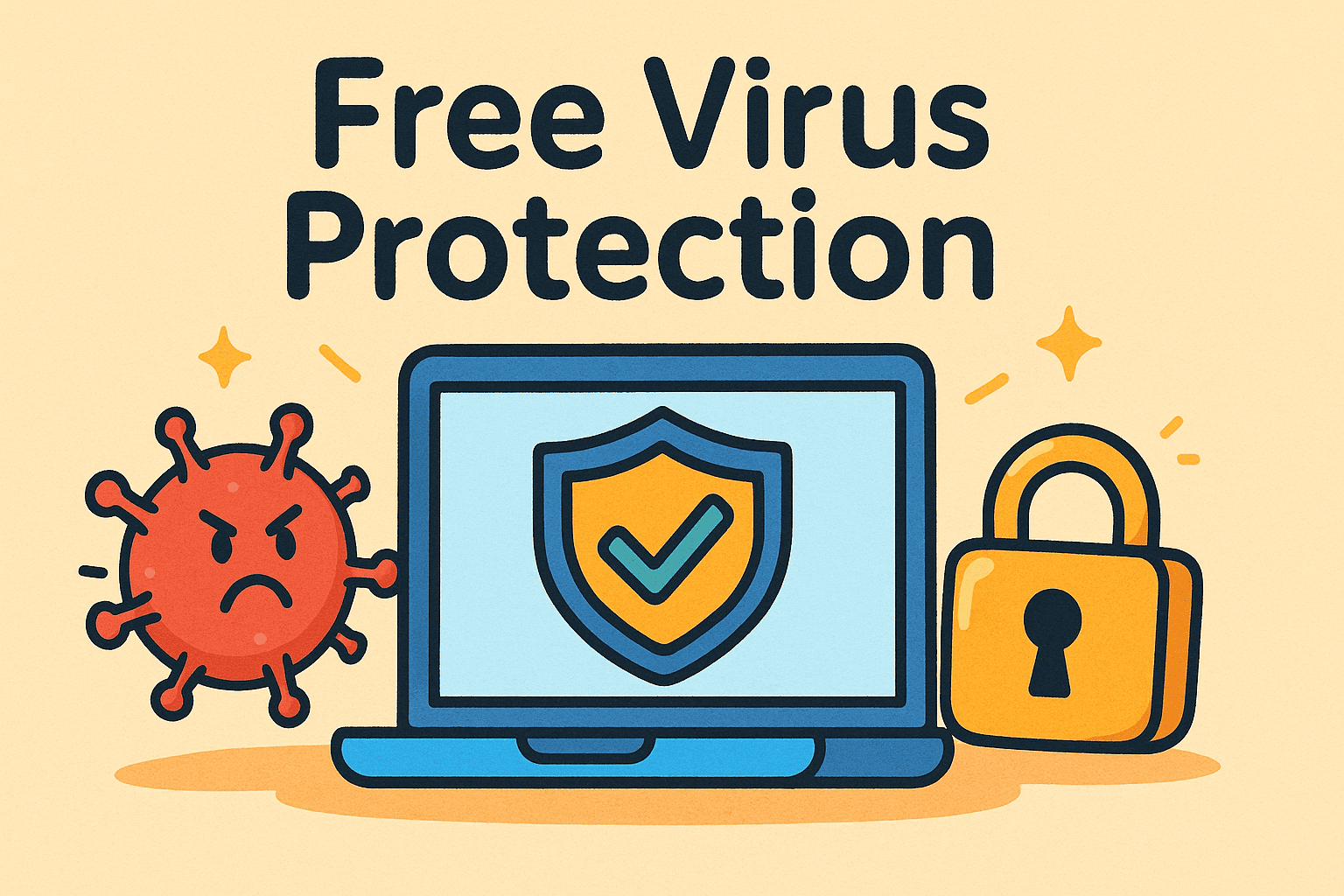Updated on October 6, 2025, by OpenEDR
With cyberattacks increasing every year, everyone—from home users to CEOs—is looking for reliable ways to protect their devices. The most common question is: is free virus protection enough?
Introduction: Can Free Virus Protection Really Keep You Safe?
Free virus protection offers a basic layer of defense against malware, viruses, and phishing attacks, making it attractive for individuals and small businesses with tight budgets. However, with sophisticated threats like ransomware and zero-day exploits on the rise, relying solely on free antivirus software may leave dangerous gaps in your security.
This article explores the strengths and weaknesses of free virus protection, compares it to paid solutions, and provides actionable insights for IT managers, cybersecurity professionals, and business leaders.
What Is Free Virus Protection?
Free virus protection refers to antivirus software provided at no cost to users. These tools are designed to detect and remove common forms of malware.
Typical features include:
Basic virus and malware detection
Real-time scanning
Automatic updates (sometimes limited)
Quarantine and removal of threats
👉 In short: Free virus protection provides essential security but often lacks advanced features needed for business environments.
Benefits of Free Virus Protection
Free antivirus software has its place, especially for individuals or small teams.
✅ Cost Savings – No financial investment required.
✅ Ease of Use – Simple installation and setup.
✅ Basic Protection – Covers common malware threats.
✅ Trial Opportunity – Lets users test a vendor’s capabilities before upgrading.
👉 Example: Tools like Avast Free Antivirus or Microsoft Defender provide strong baseline protection for personal devices.
Limitations of Free Virus Protection
While free antivirus may seem appealing, there are significant drawbacks:
❌ Limited Features – No ransomware defense, VPN, or identity theft protection.
❌ Lack of Business Support – No centralized management or IT controls.
❌ Data Privacy Concerns – Some free tools collect and sell user data.
❌ No Compliance Assurance – Insufficient for GDPR, HIPAA, or PCI DSS requirements.
❌ Reactive Security – Focuses on known threats, not advanced or zero-day attacks.
👉 Verdict: Free virus protection is better than nothing, but it’s not enough for serious cybersecurity needs.
Free Virus Protection vs Paid Antivirus
| Feature | Free Virus Protection | Paid Antivirus / Endpoint Security |
|---|---|---|
| Malware Detection | Basic protection | Advanced with AI & behavioral analysis |
| Ransomware Defense | Limited or absent | Strong anti-ransomware tools |
| Privacy Tools | Minimal | VPN, password managers, dark web monitoring |
| Business Use | Not designed for enterprises | Centralized dashboards & compliance |
| Support | Community-based or none | 24/7 professional support |
👉 Verdict: Free antivirus is useful for personal use, but businesses require paid solutions or EDR platforms for full protection.
Risks of Relying Only on Free Virus Protection
Ignoring advanced protection can lead to serious consequences:
Data Breaches – Hackers exploit gaps in free tools.
Ransomware Attacks – Free solutions often can’t stop modern ransomware.
Financial Losses – Recovery costs can reach millions for enterprises.
Reputation Damage – Customers lose trust after breaches.
Compliance Violations – Fines for failing to protect sensitive data.
Best Free Virus Protection Tools in 2025
While limited, some free antivirus tools are better than others.
Microsoft Defender – Built into Windows, provides decent baseline protection.
Avast Free Antivirus – Offers malware detection and phishing protection.
AVG Free Antivirus – Solid free option with real-time protection.
Bitdefender Free Edition – Lightweight and effective at malware blocking.
👉 Good for individuals, but not recommended for businesses handling sensitive data.
Why Businesses Should Avoid Solely Using Free Virus Protection
IT managers and CEOs should recognize that free antivirus does not provide:
Centralized monitoring for multiple devices.
Integration with Endpoint Detection & Response (EDR).
Threat intelligence to prevent zero-day exploits.
Scalability for remote teams.
Guaranteed compliance with industry regulations.
Instead, businesses should adopt layered security strategies that include:
EDR (Endpoint Detection & Response)
Firewalls and VPNs
Multi-factor authentication (MFA)
Security awareness training
Best Practices for Using Free Virus Protection
If you do choose free antivirus, follow these steps:
✅ Keep software updated regularly.
✅ Use strong, unique passwords.
✅ Enable multi-factor authentication.
✅ Pair free antivirus with a firewall.
✅ Avoid downloading apps from unknown sources.
👉 For businesses: free antivirus may supplement, but should never replace enterprise-grade security solutions.
The Future of Virus Protection
As cyber threats evolve, expect both free and paid antivirus to adapt:
AI-Driven Protection – Faster detection of unknown threats.
Cloud-Based Security – Lighter footprint with real-time updates.
Integrated Security Suites – Combining antivirus, EDR, and identity protection.
Zero Trust Architectures – Making traditional antivirus less central.
FAQs: Free Virus Protection
1. Is free virus protection safe to use?
Yes, but it’s limited. It works best for individuals, not businesses.
2. Which free antivirus is best?
Microsoft Defender, Avast, AVG, and Bitdefender Free are top options.
3. Can free antivirus stop ransomware?
Most free tools have limited ransomware protection. Paid solutions or EDR are better.
4. Do businesses need more than free virus protection?
Absolutely. Businesses should use paid antivirus, EDR, and layered security measures.
5. Is free virus protection enough for compliance?
No. Free tools don’t meet standards like HIPAA, PCI DSS, or GDPR.
Conclusion: Is Free Virus Protection Enough?
So, is free virus protection good enough? The answer depends on your needs. For personal users with low-risk data, it provides basic defense against common malware. But for businesses, IT managers, and cybersecurity leaders, free antivirus falls short of the security required to protect sensitive data and ensure compliance.
The safest approach is to combine antivirus with advanced tools like Endpoint Detection & Response (EDR), firewalls, and Zero Trust policies.
👉 Upgrade your security today with enterprise-grade protection: Register for OpenEDR Free
